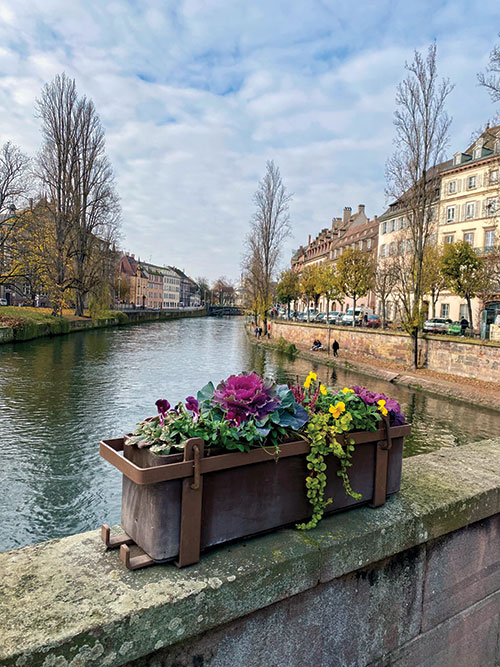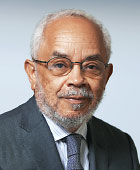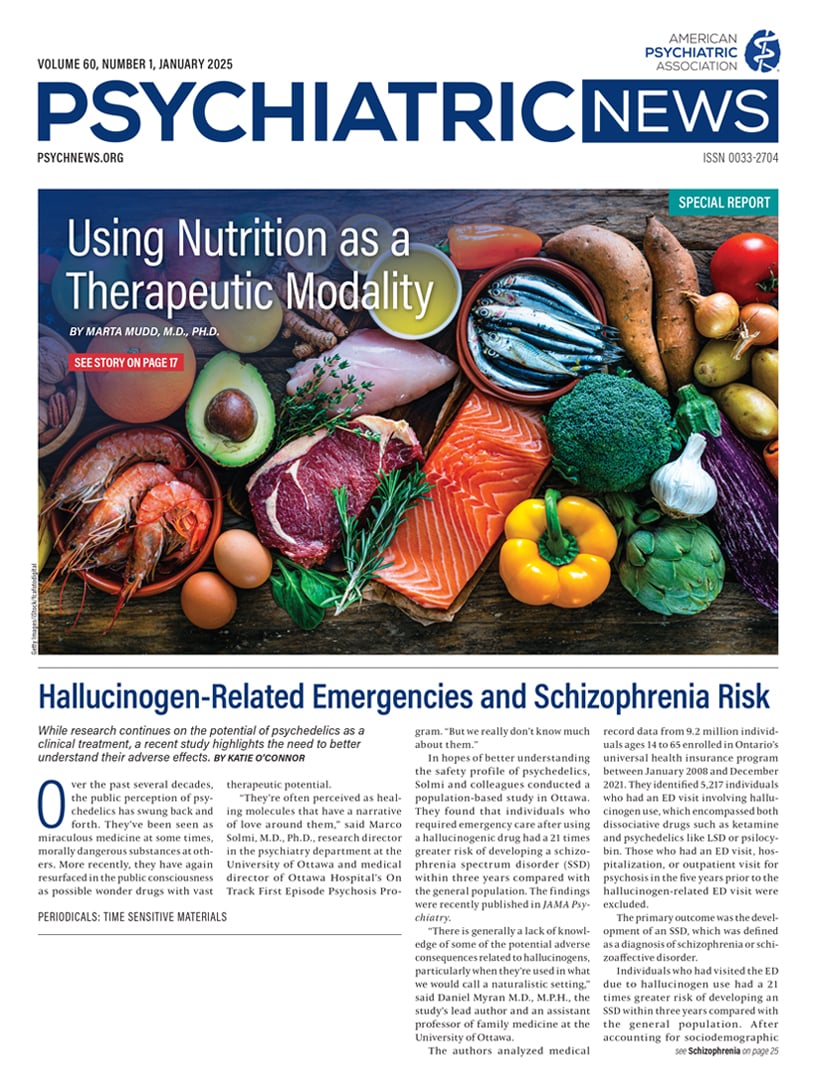Strasbourg is a very old, gray city that sits on the Rhine river in Alsace, a historical region in the northeast corner of France. It is full of memories for me. No question that after looking at it for a while, a long while, you will see its beauty. But it won’t be the dazzling, bright smile of an adolescent. It’ll be the clever, seductive challenge of an experienced woman who has tales to tell and is sorry that you don’t have the patience and foresight to listen to her stories.
The very first time I saw the city, in 1967, dark clouds covering up the sky and the dampness penetrating my shoes, I left and went back to Paris, where sunlight and warmth were everywhere. I returned to Strasbourg several weeks later to begin my studies in medicine. Despite our first disagreeable encounter, I settled down in the city for six years, got my degree, returned to New York City to specialize in psychiatry, and then went to New Haven to start my career.
Strasbourg had gradually grown on me. I took to the Ill river and its canals winding through the city, the world-famous Christmas market, the Alsatian-accented French of its citizens, and the patisserie full of light cream that did nothing good for the arteries. I even became accustomed to the antiquated buildings of the large teaching hospital surrounded by its own wall that set it apart from the rest of the city.
Destined to Meet
I loved the intellectual stimulation of the place. The anatomy professor held us in awe with his dynamism and performative techniques. That first day, he used a chair held above his head with a single hand to illustrate the structural rules for looking at an immobile human body: what was left and right; distal and proximal; interior and exterior; lateral and medial. It was magical.
And he spoke without notes, never breaking stride. He stopped on time, after having drawn diagrams on the board using different colored chalk pieces ambidextrously. Every lecture was like that: thoroughly prepared, logically structured, and presented with precise enunciation and diction. These were master classes in medical pedagogy.
Another intriguing aspect of the teaching method was that, as a general matter, professors framed their examination questions as a function of what they taught in their class lectures. There were rarely written handouts. Outside textbooks could provide clarifying information, but not the preferred way of presenting the essay answer to a question. This meant that class attendance was encouraged by the students themselves. This growing attraction to formalized academic medicine in a distinctly French style was in a way “precious,” reminiscent of a unique approach to the old French notion of “précieux” applied to an excessively formalized manner of presenting an idea.
Further intellectual stimulation came as I developed interest in the connection of Strasbourg to the history of Protestant religion. During a return visit to the city a few years ago, a friend presented me with a copy of “Strasbourg and the English Reformation: Alsatian Contributions to the Formation of the Church of England” (J-J Chardin, et al., 2018). I had met my friend during our early Strasbourg years when he was a doctoral student at the Protestant theology faculty. This friend and I spent hours talking about Strasbourg’s role in the history of the Anglican Church and Protestantism in the Caribbean.
I began to feel that Strasbourg and I were destined to meet. In the text, coedited by my friend, there was mention of the Dutch humanist Erasmus of Rotterdam, who made an official visit to Strasbourg in 1514 on his return from England. Strasbourg was said to have avoided negative fallout that tainted Martin Luther’s opposition to Roman leadership of the Church between 1517 and 1521. Strasbourg theologians also played a role in 1531 when a delegation from Henry VIII’s court sought advice from scholars about the English monarch’s pursuit of a divorce.
Home Away From Home
On my most recent trip to Strasbourg this past November, I could see the signs of change throughout the city. Traffic patterns now made it difficult to drive a car into the oldest urban sections, which left the competition for dominance to pedestrians, bicycles, and scooters. English and other languages seemed more prominent among the diverse visitor population. I was invited to a medically oriented dinner party and found myself listening to a retired professor tell me about his research interest in pathological disorders that contribute to the cause of “fatty liver.”
I was pleased that I still had a good practical command of French. The episode reminded me of the times when I had to use a few words of Alsatian to interview a patient. Mastering another language has made me more patient in my interactions with people who are obliged to use a foreign tongue with me.
During my entire six-year stay in Strasbourg, the Sunday-afternoon gathering of Anglophone foreign students for a church service became a supportive home away from home. After the service, which was distinctly Protestant in tone, single students like me were often invited to the homes of married couples who had both the facilities and resources to host small groups comfortably. Out of groups like that one grew some wonderful friendships that in my case lasted for years.
One family often invited me to join them for trips outside the city to visit vineyards and other tourist sites. There was, from time to time, a reminder that the years spent outside the United States might have been, for some of us, a sort of self-exile. Others felt it as time spent at an oasis, reflecting on how to ease back into American culture when that time would come. ■



